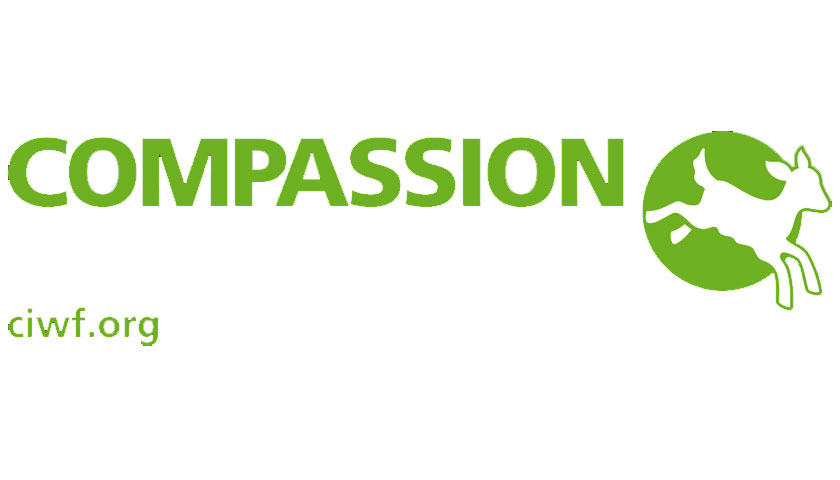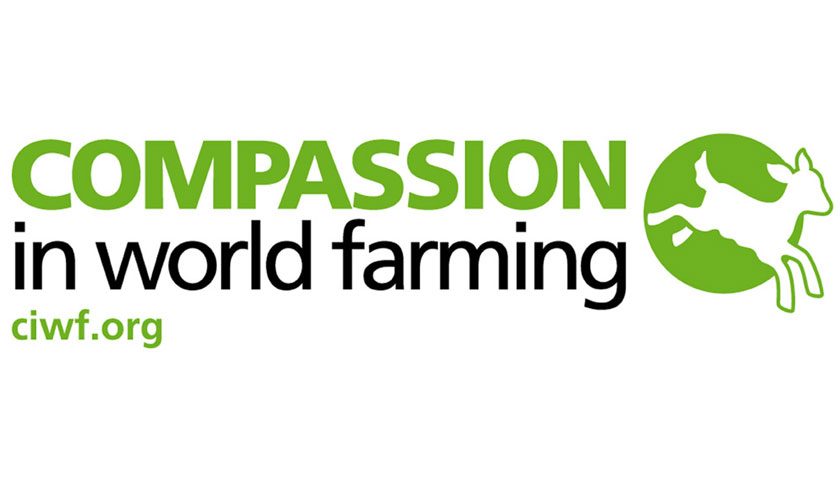Compassion in World Farming is turning its focus on fish with the launch of their new #RethinkFish campaign to help improve the welfare of the trillions of fish – both farmed and wild – which are used for human consumption every year.
The aim of the campaign is to raise general awareness of the sentience of fish and specifically issues such as overcrowding on intensive fish farms where disease and parasites can thrive, and the inhumane slaughter methods that are widely used.
Thanks to programmes like David Attenborough’s Blue Planet, the world is finally waking up to the fact that fish are sentient beings that lead complex lives and are able to feel pain, stress and fear as well as exhibit positive emotions, social bonds and advanced intelligence.
Fish deserve a good quality of life and ensuring their welfare when they are caught and killed is equally important. Today, it is estimated that globally up to 3 trillion fish are killed annually for human consumption (and for the production of fish meal and fish oil), compared to 74 billion land animals.
Problems in intensive aquaculture recently came under the spotlight on Scottish salmon farms where fish were suffering from a serious parasite epidemic. Unfortunately, the environment in which salmon are farmed – in barren conditions and at high stocking densities – provide ideal conditions for parasites such as sea lice to propagate. This not only affects the farmed fish but those living in the surrounding water too. In addition, salmon (like trout) are carnivorous and are fed on diets high in fish meal made from wild caught fish; there is no humane slaughter of these fish and wild stocks are under severe pressure. Compassion is therefore calling for a moratorium on further expansion of the Scottish fish farming industry until it is able to address the plethora of welfare and sustainability issues.
Inhumane methods of fish slaughter, for example, by submersion in a mixture of ice and water; suffocation in air; exposure to carbon dioxide; and bleeding without pre-stunning, causes considerable pain, fear and suffering which can be prolonged. Many fish remain conscious for hours during catching and processing and can suffer for several minutes after having their gills cut and left to bleed out.
Fortunately, more humane methods of fish slaughter do exist and are being developed and adopted across the industry.
In 2017, Tesco was awarded the Best Innovation Award at Compassion’s Good Farm Animal Welfare Awards for their leading work to introduce a humane slaughter system for sea bass and sea bream into commercial practice. Rejecting the commonly used method of live chilling conscious fish in ice slurry, which can take up to 40 minutes before unconsciousness occurs, Tesco worked closely with their farmers and processors to develop a more humane and rapid process. The fish are pumped onto the harvest vessel from their pens where they are electrically stunned and rendered unconscious which lasts to death following immersion in ice-slurry. Reducing stress before slaughter is not only more humane but has product quality benefits too.
Just as we have seen in recent years with the changes in attitudes towards cage-free eggs and a growing demand for improved broiler welfare, we expect to see more consumers expressing their concerns for fish welfare as they become more aware of how fish are farmed and the associated knock-on effect it is having on sustainability and the environment. This will ultimately drive further change across the fish industry.
In a recent survey of 9,000 people across Europe by the polling agency ComRes, 79% of adults across the European markets tested said that the welfare of fish should be protected to the same extent as other animals eaten by humans, and that their welfare should be protected better than it is currently. The majority of respondents also reported that they would be willing to pay more for higher welfare products with 79% stating they would like information about fish welfare to be visible on the packaging of all fish products, to allow them to make informed decisions about the type, species and wellbeing of the fish they buy and consume.
We are currently facing a global crisis of overfishing and with the consumption of fish on the rise due to the popularity of healthy diets such as the Mediterranean diet advocating eating oily fish, or with people decreasing their red meat consumption and turning to eating more fish, we are witnessing the aggressive expansion of fish farming which is unsustainable.
Compassion has long been urging consumers to turn to more plant-based diets, where less meat and fish are eaten or where consumed, it comes from higher welfare sources. With more people turning to flexitarian and vegetarian diets, there is a clear opportunity for industry to increase its plant-based offering as well as addressing fish welfare and sustainability issues across the supply chain.
Dr Tracey Jones, Director of Food Business, Compassion in World Farming says: “Much needs to change to address the welfare issues for the vast numbers of fish that are farmed for our food. The first step is to ensure good welfare at slaughter and we’ve seen some industry progress in this area for certain species such as salmon and trout.
Now is the time for food companies to be abreast of the growing consumer concern and to ensure that all finfish farmed for food are humanely slaughtered and that they have supplier policies in place to ensure good welfare throughout life.”
Compassion is uniquely positioned to help the food industry develop their policies on fish and has a number of resources readily available for companies to help address these issues – find out more at: www.compassioninfoodbusiness.com

